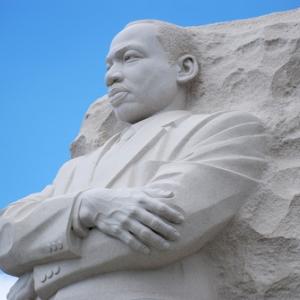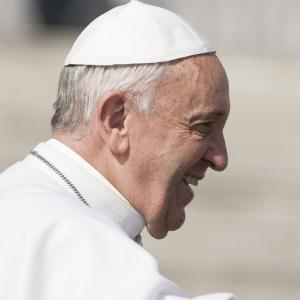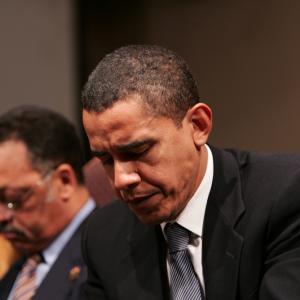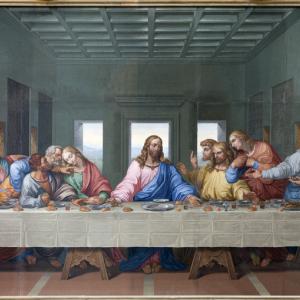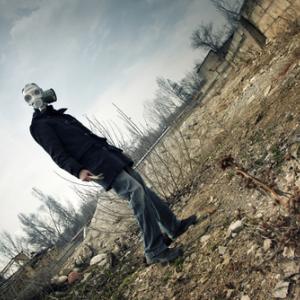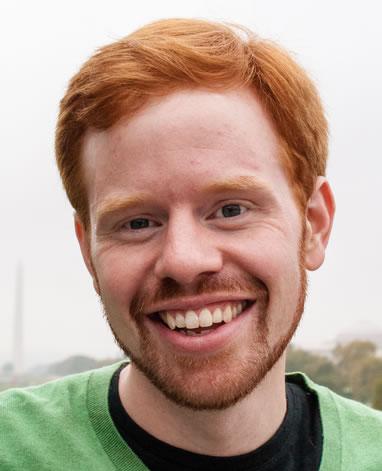
Micah Bales is a writer, teacher, and grassroots Christian leader living in Washington, D.C. He is a founding member of Friends of Jesus, a new Quaker community, and has been an organizer with the Occupy movement. Micah lives together with his family in DC's Ward 7.
In his writing and public ministry, Micah seeks to encourage conversation and reflection about how the living presence of Jesus makes possible reconciliation and transformation around questions of economic inequality, racial justice, and care for the creation. You can read more of his work at www.micahbales.com, or follow him on Twitter.
Posts By This Author
Could Empire be a Good Thing?
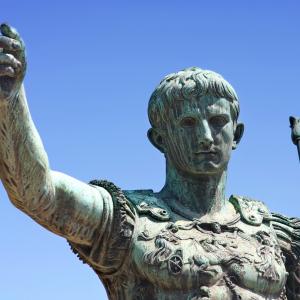
Photo via Vladimir Mucibabic / Shutterstock
Why would a good and loving God be described in imperial terms? Could even empire play a role in God’s vision? If God in Jesus has created everything for a helpful purpose, perhaps it is only our twisting of God’s good creation that has turned empire into a destructive force.
Is It Time to Turn Off the News?
For years, I’ve had a rocky relationship with the news. I love to know what’s going on in the world, but I can’t help but notice that the news sources I read all present the story from a definite slant. More and more over the last couple years, I’ve felt like I’m doing battle with the newspaper every morning. Each day, the media machine is telling me who I should vote for, what to buy, what new disease to fear, and who my country should kill.
Martin Luther King Isn’t Interested in Your Praise
As the #BlackLivesMatter movement reminds us, the civil rights struggle is far from over. The blood, sweat, and tears of our 20th-century civil rights heroes must be followed up by the clear-eyed resolve of a new generation. Ideally, celebrations like Martin Luther King Day should help to sustain this resolve, energizing us for the hard work ahead.
That being said, I suspect that King would not be too thrilled about MLK Day.
Why Is Our Christian President So Willing to Use Violence?
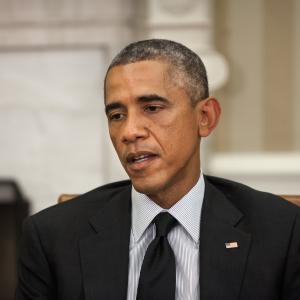
Photo via Drop of Light / Shutterstock.com
For his final State of the Union address, President Obama delivered a characteristically eloquent and passionate speech. He issued a heartfelt call for unity and cooperation in a country whose political climate is just a few notches short of civil war. He asked us to consider how we might move forward as one nation, affirming our highest ideals rather than the hateful rhetoric of would-be despots.
Obama’s final State of the Union was in many ways a masterpiece of American political theater. He reminded us of the best of our tradition, calling us to live up to our history of welcoming the outsider and being a land of opportunity for all people. Despite the fact that this canonical history is to a great degree aspirational rather than actual, I was at many points uplifted to hear the president invite us to live into the more beautiful aspects of the American Dream.
Jesus Was a Prayer Shamer
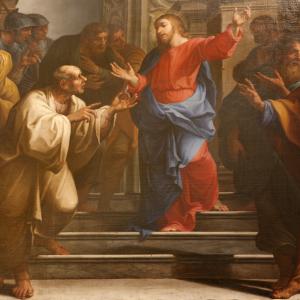
Image via Renata Sedmakova/Shutterstock.com
As strange as it may seem, The New York Daily News may have gotten this one right, from a Christian perspective. A snowflake or Christmas tree on our coffee cup isn’t going to make our country a more Christian society. Religious words and calculated condolences aren’t going to restore God’s peace to our streets. The religion of Jesus and the prophets is a sincere faith expressed through positive action for change.
Please, Do Not Let Paris Be Another 9/11
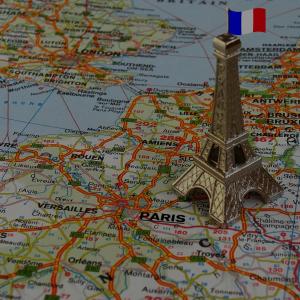
Image via yuri4u80/Shutterstock.com
Just like you, I was horrified when I learned of the terror attacks in Paris on Nov. 13. The scale, precision, and barbarity of these crimes are hard to fathom.
My first reaction was sadness for the victims and a desire for peace. My second was a sense of mild panic. If they can do this in Paris, they can certainly do it in my city!
My third reaction, one I’m not particularly proud of: I thought about how much I’d like to see the people responsible for these acts hunted down and destroyed.
I’ve been thinking a lot about 9/11 lately. I remember the way that we as a nation went through a similar three-step process. We went from shock and sympathy to fear and paranoia, and finally to the conviction that we must annihilate those who attacked us.
It all happened so quickly.
Fifty Years Ago, a Quaker Lit Himself on Fire to Protest War. How Can I Understand It?

Image via BERNATSKAYA OXANA/Shutterstock.com
As he poured the gallon jug of kerosene over his head, onlookers reacted with disbelief. Before anyone knew what to do, he lit a match. In one terrible instant, 31-year-old Quaker Norman Morrison set himself ablaze in front of the Pentagon, just 40 feet below the 3rd floor window of Secretary of Defense Robert McNamara.
Moments before ignition, Morrison passed his 11-month-old daughter, Emily, to a bystander. His wife and two other children were in Baltimore that day, unaware of what this young husband and father had planned.
Though his terrifying act of self-destruction, Morrison brought the Vietnam War home to a country that was still largely unaware of the widespread atrocities taking place in Southeast Asia. It was hard for most Americans to comprehend the true human cost of U.S. carpet bombing, and the incineration of whole families in the name of peace and security. Even the U.S. military officials leading the war effort did not understand on a visceral level what it meant to burn human beings alive in Vietnam.
Norman Morrison provided a live demonstration.
Is Capitalism Compatible With Christianity?
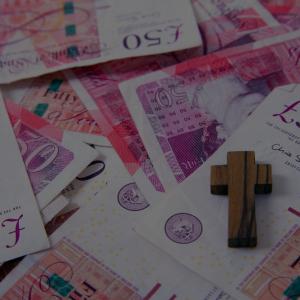
Image via ljubaphoto/Shutterstock.com
When Jesus called the first disciples, he totally disrupted their economic lives. Simon and Andrew, James and John were working for their family business, as they were raised to do. Their fathers were fisherman, just like their fathers’ fathers, stretching back beyond memory. Fishing was a way to make money, but it was also much more than that. The family business provided a sense of place, of meaning. It was a social order that allowed each member of the family to know exactly where they fit.
Only when we understand this can we begin to grasp the radical nature of Jesus’ invitation to his first followers and friends: Follow me, and I will make you fish for people. Jesus offered an entirely different economic and social order. His was an invitation without safety nets, justifications, or guarantees. The first disciples immediately abandoned their nets, their livelihood, the whole social order that gave them a place to stand. They left everything, even their own worldview, to follow Jesus.
3 Reasons Pope Francis' Visit Could Change America

Image via Africa Studio/Shutterstock
Pope Francis will be arriving in Washington, D.C., tomorrow, and we locals are getting ready for a huge celebration. Public officials have warned us to avoid travel for the next few days. We’re expecting the roads and public transportation to be flooded with thousands of pilgrims making their way to see the head of the world’s largest Christian communion. It’s gonna be a beautiful mess!
The pontiff's visit to the United States will be an enormous spectacle. I have no doubt that many will find it inspiring and uplifting. But what’s the ultimate impact? Could his time in the U.S. make waves that go beyond traffic delays and photo ops?
Here are three reasons that the pope’s arrival could mark a tipping point for American culture.
Why Pope Francis' Encyclical Gives Me Hope
By choosing to focus on the plight of the poor and the groaning of the earth itself, Francis is tapping into something much deeper than denominational squabbles and political maneuvering. He is seeking to make an end-run around the tedious shouting matches of privileged contenders in pitched ideological battles. This is a pope, not of the pundits but of the people – and of the planet.
We’re all connected. Just as the body of Christ is one – despite all of our institutional and ideological boundaries – all of humanity, all life is one. We’re rooted together in the soil that feeds us, in the natural ecosystems that sustain our very existence.
Nonviolence in the Face of ISIS?
A couple of folks I really respect – Kate Gould of Friends Committee on National Legislation (aka, the Quaker Lobby), and Jim Wallis of Sojourners – were recently on the O’Reilly Factor. For those of you who don’t watch cable news, this is a television program where Bill O’Reilly basically screams at people and incites hatred of anything non-white, non-rich, and non-Republican. I normally don’t watch the show. But when I heard that Kate and Jim were going to be talking, I tuned in.
I knew almost immediately this wasn’t going to be good. It’s Bill’s program, so he gets to frame the question. Here’s what he asks: Do Christian pacifists have a solution for stopping ISIS?
It’s the wrong question.
Does Obama Owe Christians An Apology?
I’m very offended. Or so I’m told. As a believing Christian, I’m supposed to be deeply troubled by the remarks that President Barack Obama delivered at the recent National Prayer Breakfast here in Washington, DC. Former Virginia governor Jim Gilmore had this to say:
The president’s comments this morning at the prayer breakfast are the most offensive I’ve ever heard a president make in my lifetime. He has offended every believing Christian in the United States. This goes further to the point that Mr. Obama does not believe in America or the values we all share.
Strong words. But what were Obama’s terribly offensive remarks? Here’s what the president said:
And lest we get on our high horse and think [religious violence] is unique to some other place, remember that during the Crusades and the Inquisition, people committed terrible deeds in the name of Christ. In our home country, slavery and Jim Crow all too often was justified in the name of Christ.
Wait… what? Why should I be offended by that? That’s a fact. That’s our history. Every Christian should be aware of what we are capable of when we turn our eyes away from the self-sacrificing love of Jesus and instead turn Christianity into an ideology that justifies terror, brutality, oppression, and war.
It should be impossible to study Western history without getting some glimpse into the terrifying possibilities that any religious system — including Christian ones — hold out for those who seek to dominate others. We humans have a long track record of twisting our most precious faith into a weapon of violence and hatred. This shouldn’t be a controversial statement; it should be a matter of ongoing repentance and prayer for people of faith everywhere.
So I’m confused.
The Power of None
A couple years ago, a survey found that one in five Americans don’t identify with any religion. For Americans under 30, the number was far higher – more like one third. This report is being cited constantly throughout the religious-nonprofit world. In many quarters, there seems to be a deep sense of shock at the decline in religious membership.
Me? I’m not surprised at all. What does surprise me is our failure to see that affiliation with a traditional, God-centered religion is no longer the primary way that many Americans express their deeply rooted need for faith. We humans are relentlessly religious animals, and post-modern America is no exception. We’re just embracing a different kind of faith.
The State of the Communion
Tuesday was a big day here in Washington, D.C. The president of the United States addressed both houses of Congress and the Supreme Court, laying out his State of the Union. In this annual speech, the President lays out his vision of where the country is at, and where we are headed. With great pomp and circumstance, the Commander-in-Chief delivers a message for the whole nation.
Tuesday night was a big moment for my community, too. The D.C. small group of Friends of Jesus gathered for our first small group meeting of 2014. We caught up with one another after many weeks apart. We experienced the story of Acts 2 in the form of a bibliodrama that we acted out together. We shared a time of deep worship and prayer.
Let's Go Beyond Consumerism, Citizenship, and Individualism
This morning at breakfast, I was reading an article in the newspaper about how the Affordable Care Act is negatively affecting some individuals — especially those who buy their own insurance, rather than receiving it through an employer. The article was interesting, but what struck me the most was the way the problem was framed. Rather than approaching the story from a public policy angle, the article mainly focused on the reaction of consumers of health-care goods and services. The crux of the article was whether some individuals should be required to buy a product they might not want or need so that other individuals could have affordable access to health-care products they need desperately but might not be able to afford under the old regime.
The dilemma was presented as a story of tension between healthier consumers and less healthy consumers fighting to get the best deal for their health-care dollars. But could there be another way of thinking about health care, and about our society as a whole? Is there a framework that would allow us to consider these questions in a way that assumed connection, caring, and community between individuals, rather than the zero-sum competition of the market?
The Gods of the Market
For most of human history, religious faith has been central to the life, economy, and government of virtually all societies. Babylon, Egypt, China, Greece, and Rome: all of these empires explicitly traced their authority from heaven, the gods, or other transcendent concepts that can only be described as religious. Religious acts were political acts, and vice versa. To challenge the status quo of the ruling authorities was to call into question the religious authorities, as well. Expressions of faith were serious business.
For more than a thousand years, Western Christianity was the theological glue that held European society together. We can still observe remnants of these former times in the civil religion of the United States. Even today, presidents invoke the name of God during speeches. Prayers are spoken before sessions of legislative bodies. New citizens and government employees are required to swear oaths of loyalty to the state. Our civil structures still bear traces of a time when Christian religious concepts were deeply intertwined with government.
For the most part, however, theistic religion is being pushed steadily out of our civic life.
Apocalypse Now!?
What comes into your mind when you hear the word apocalypse? Most of us think of us think of the total destruction of the world, or at least life as we know it. Think zombies roaming the streets, feasting on brains. On the other hand, my sarcastic generation is doing a pretty good job of using apocalypse as a silly word. I remember a few years ago when we had a large winter storm here in Washington, D.C.; it was instantly dubbed Snowpocalypse!
The English word apocalypse derives from the ancient Greek apocalupsis, which is the original title for the infamous Book of Revelation. Revelation involves a lot of fire, smoke, battles, and things generally blowing up, so it’s understandable that today we would associate apocalypse with end-times battles. However, the word apocalypse contains a much deeper meaning. Far more profound than the long-awaited zombie hordes – or even the end-times prophecies of some churchgoers – this ancient, misunderstood word is an essential tool for comprehending the world we live in.
Apocalupsis is a term that means unveiling – as in setting aside a covering to discover what lies underneath. At the most basic level, the Book of Revelation is about removing the blindfold that the Powers have pulled over our eyes, allowing us to see the world as it really is. Revelation is about unveiling Empire, exposing the ways in which powerful interests destroy the earth and enslave other human beings to promote their own luxury and power. Despite its reputation, Revelation is not about a future-oriented, earth-hating vision of universal destruction. On the contrary, it is a vision of a new creation and universal restoration – the world finally set right and edenic harmony restored in the midst of the city.
OK – great, you may be saying. Nice to know, but how is this relevant to me?
Fair question. It’s true that the Book of Revelation was written almost 2,000 years ago. Those were the days of the Roman Empire – think Ben Hur and Spartacus. For sure, things have changed a lot since then.
Yet, the more things change, the more they stay the same.

